Shalom from Tiberias, Tiveryah, Rakkath, Hammath!
Recently I wished my FB Friends “Shabbat Shalom from Tiberias, Israel!”
Pretty quickly I received a message in reply, “Good Shabbos to RAKKAH, Israel… the more Rakkah is used, more people will acknowledge the truth and use this REAL NAME [for Tiberias] = RAKKAH, Israel.” (sic)
Well I appreciate the sentiment, equating it to the campaign to get people to say “Yehuda and Shomron” instead of “The West Bank.” However, using the name Tiberias does not really present the same problems as calling our biblical tribal lands “West Bank.”
What is the Biblical name for Tiberias?
The city of Tiberias was founded by Herod Antipas in 18 CE and named after the current Caesar, Tiberius. (Similar to how Herod the Great named Caearea after Caesar Augustus 30 years earlier). Therefore, there will be no Biblical Hebrew references to this city name. (although the Talmud is full of many references to it as we will see)
וְעָרֵי מִבְצָר הַצִּדִּים צֵר וְחַמַּת רַקַּת וְכִנָּרֶת׃
Its fortified towns were Ziddim, Zer, Hammath, Rakkath, and Khinnereth,
The exact physical location of these Canaanite cities that were captured by Joshua is difficult to pinpoint.
If you look at “maps” that scholars have “created” you won’t find a lot of agreement.
One of the most ancient sources that could help us out is the Talmud where scholars in the 2nd and 3rd century are discussing where these towns were.
On Purim, we read the Megillah (Scroll of Esther) on the 14th of Adar, and on the 15th of Adar in cities that had a wall at the time of Joshua. In the 3rd century, Tiberias was the seat of the academies in Israel led by Rabbi Yochanan and there was a discussion if Tiberias was one of those walled cities from the time of Joshua.
Was Tiberias founded on the remains of one of the fortified (walled) cities mentioned in Joshua? eg. Rakkath or Hammath or Khinnereth?
Rabbi Yochanan’s Opinion (Megillah 5-6)
Rabbi Yoḥanan said: When I was a child I said something that I later asked the Elders about, and they agreed. I said that Hammath is Tiberias. And why was it called Hammath? On account of the hot springs of [ḥammei] Tiberias that are located there.
And I said that Rakkath is Tzippori. And why was it called Rakkath? Because it is raised above the surrounding areas like the bank [rakta] of a river.
And I said that Khinnereth is Ginosar. And why was it called Khinnereth? Because its fruit are sweet like the sound of a harp [kinnor].
Rava’s Opinion
Rava said: Is there anyone who says that Rakkath is not Tiberias?
Isn’t it true that when a great man dies here, in Babylonia, they lament his demise there, in Tiberias, as follows: Great was he in Sheshakh, i.e., Babylonia, and he had a name in Rakkath?
Rabba’s Opinion
Rabba said: Hammath is the hot springs of Gerar that are adjacent to Tiberias; Rakkath is Tiberias; and Khinnereth is Ginosar.
What can we conclude?
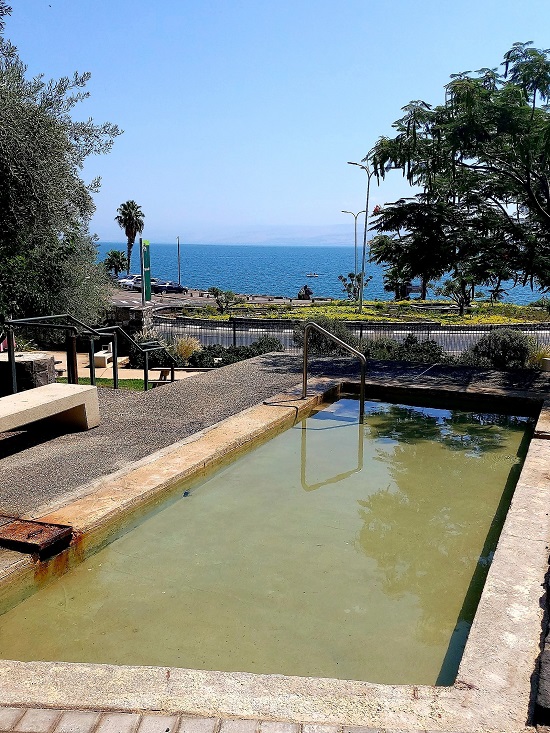
View of the Kinneret from the Middle Pool at Hammath Tiberias
Consensus seems to be that Khinnereth is located at the north end of the Sea of Galilee at Ginosar. Kinneret is the name we call the Sea of Galilee in Hebrew.
Consensus is that Hammath means “Hot Springs.” And there is only one place in the area where there are Hot Springs. We call them Hammath Tiberias today.
The Romans LOVED their bathhouses and heated them artificially unless they found natural hot springs. It makes sense that when Herod Antipas founded a Roman City to honor Tiberius, it would be located where the hot springs fit for a Caesar flowed!
I VOTE FOR RABBI YOCHANAN
Rabbi Yochanan was born about the year 180 CE in the town of Tzippori (Sepphoris) in the Galilee where Rabbi Yehuda HaNasi (The Prince) presided over the Sanhedrin.
Tzippori was the major center of Torah learning in Israel at the time and Yochanan was a primary student of Rabbi Yehuda who was the redactor of the Mishnah.
Later the Sanhedrin moved to Tiberias, and Rabbi Yochanan eventually moved there and became the leader of the community and initiated the writing of the “Jerusalem” Talmud.
Rabbi Yochanan confirmed with the “elders” (which would have included R. Yehuda HaNasi) that Tiberias was founded at Hammath and that Tzippori was originally called Rakkath. Being a “native” this opinion is very strong.
His challengers, Rava and Rabba were born and lived in Babylonia 100 years after Rabbi Yochanan!
They knew that Tiberias was the focal point of the sages in Israel in their generation, and therefore they would have assumed that if Rakkath was where the center of Torah in Israel was, that it must be Tiberias.
However, it seems they didn’t realize that the center of Jewish life referred to was Tzippori where Rabbi Yehuda HaNasi’s Sanhedrin had been.
THE “REAL” NAME OF TIBERIAS
It seems that Tiberias was founded on the ruins of the Canaanite town of Hammath. (Not Rakkath). But why would a Pagan Canaanite name be preferential to a Pagan Roman name?
In all cases, the Talmud teaches us to “reframe” and find a “holier” way to relate to the name of the city.
In the case of Tiberias, which is called Tiveryah in Hebrew, none of the explanations for the name make any mention of a Roman called Tiberius!
Rabbi Yirmeya said: and why was it called Tiveryah? Because it sits in the center [tabbur – navel] of the Land of Israel.
Rava said: and why was it called Tiveryah? Because its appearance is good [tova re’iyyata].
TO SANCTIFY THE PROFANE
As a Nation of “Priests” it is the role of Israel to “mekadesh ha’chol” – to make holy the profane.
We do this in “time” when we sanctify the Shabbat and Festival days by reciting Kiddush and refraining from regular activities.
We sanctify “place” by setting aside buildings like the Holy Temple in Jerusalem and dedicate them as places to connect to the Almighty.
We also sanctify the Land of Israel by ridding the Land of Pagan idols and elevating the place names to a higher spiritual meaning.
May we merit to bring true holiness to the Land of Israel through our words and actions!
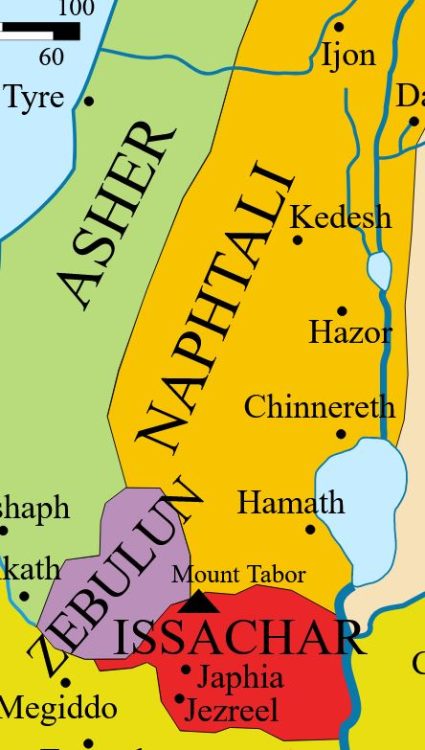
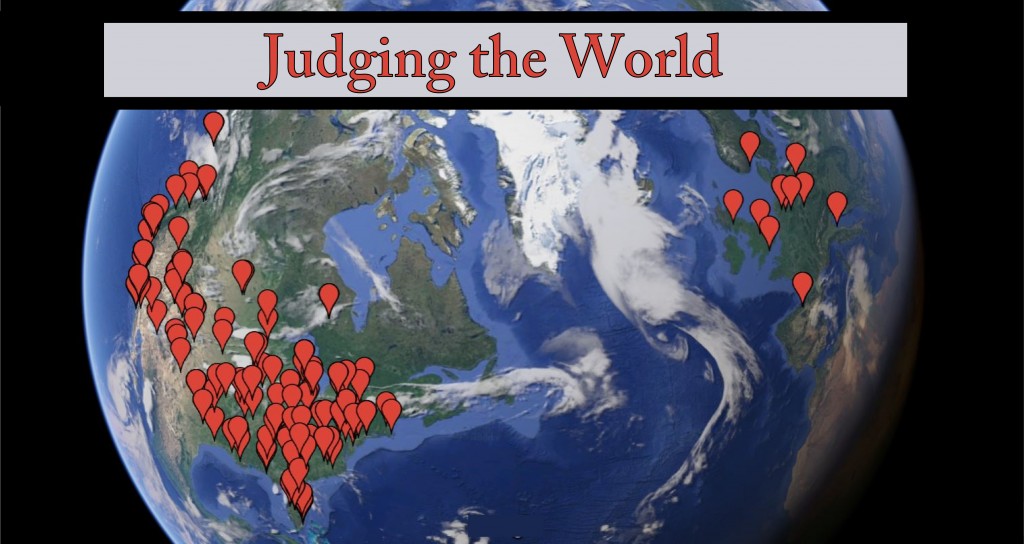
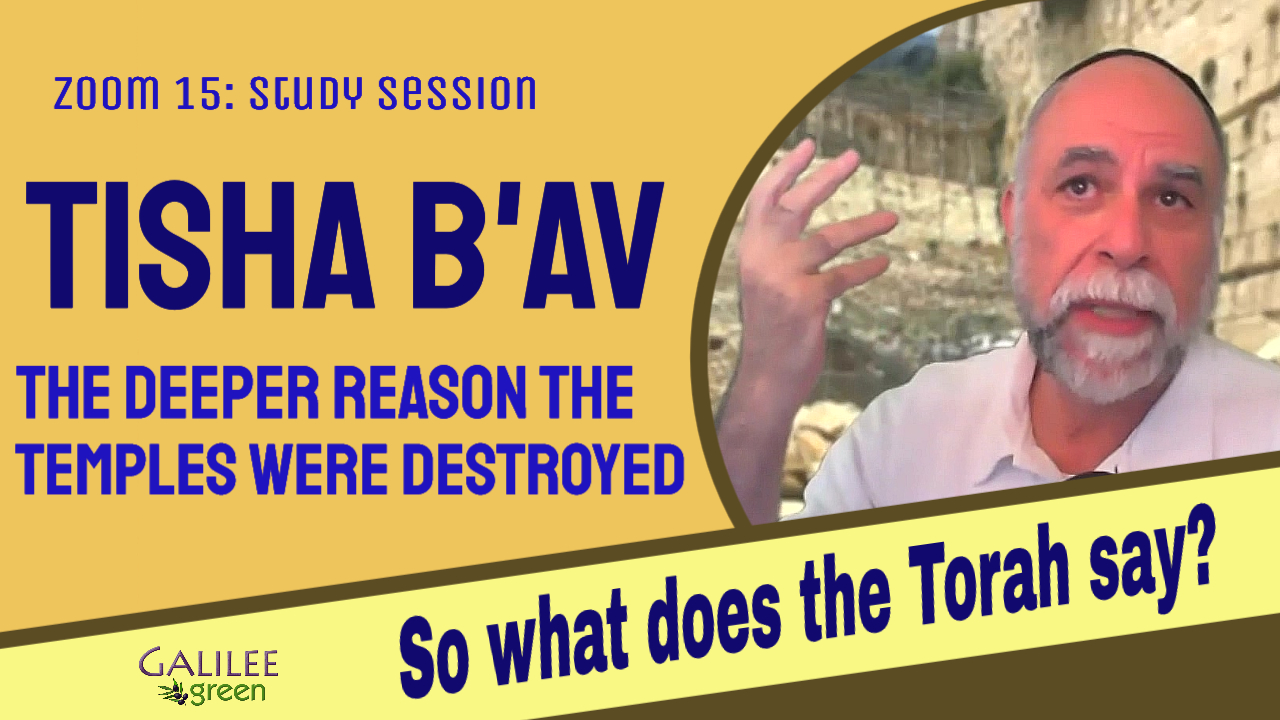
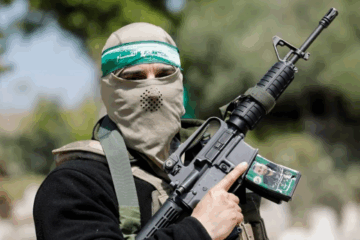

2 Comments
Valerie Walker · August 24, 2022 at 9:47 pm
This is the kind of discussion I crave. No one human has the last word on Torah or the Bible. If we don’t discuss it and really think about what we read I don’t believe we grow in our faith.
Sue Stone · August 24, 2022 at 9:49 pm
Thank you, Rabbi, for your writings every week. I don’t always understand all of it but it opens my mind to thoughts I hadn’t considered before. I love learning new things and I especially love hearing about ISRAEL in ancient days and how these things might relate to what I study in my Christian Bible. I know every Word in God’s Holy Scriptures is true and that Jews and Christians are closely related in Spirit and Truth. I’m thankful the Holy Spirit gave me a love for this Holy Land when I was very young. Itthankful, too, for you and your wisdom and for sharing with me a Gentile who loves the GOD of Abraham, Isaac and Jacob. And I did order GGOO, awaiting its arrival! Excited to be able to share it with some friends who I’ve traveled to ISRAEL with! Hope to be getting new customers for GGOO. Shalom. GOD Bless.